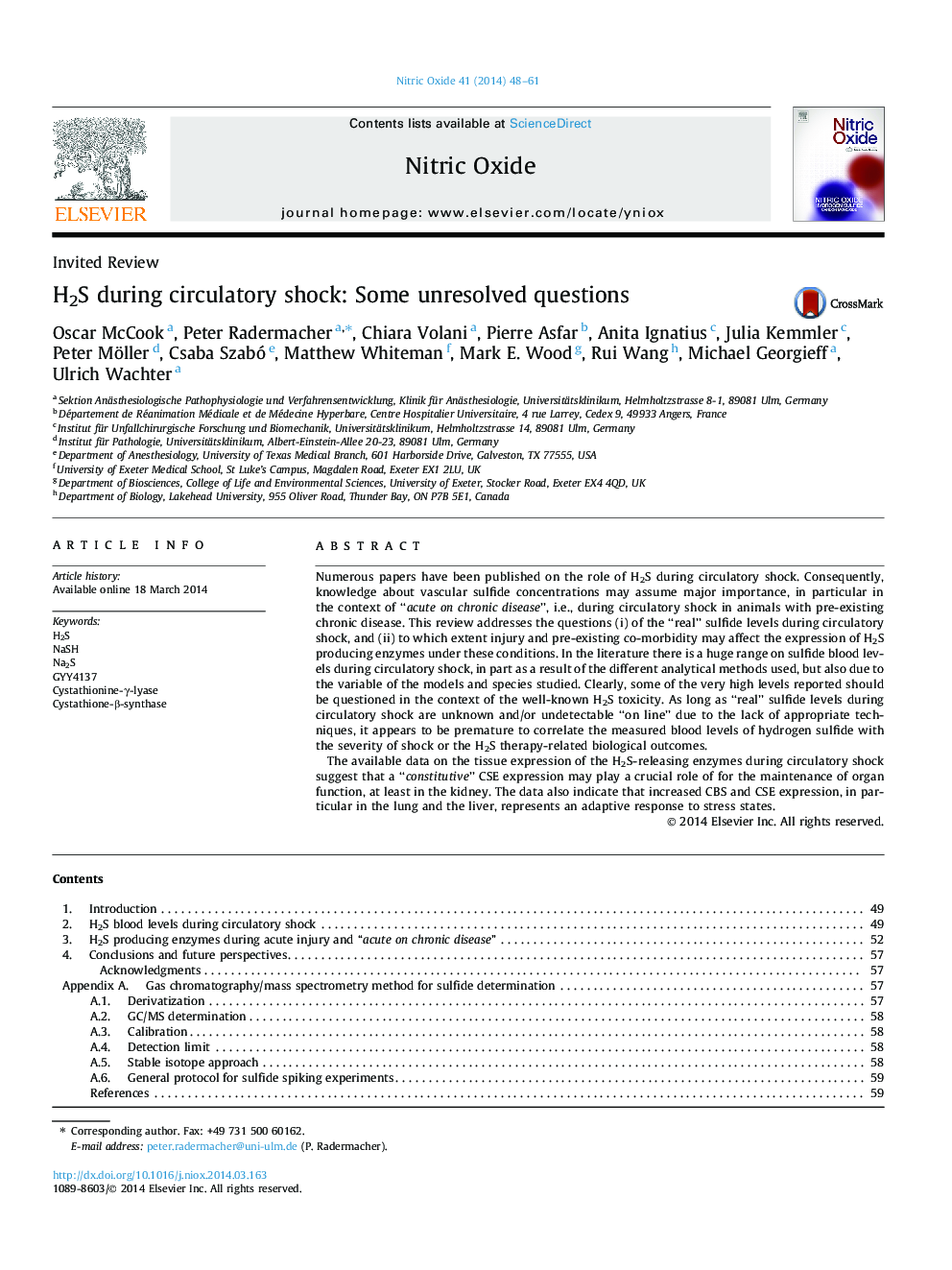| Article ID | Journal | Published Year | Pages | File Type |
|---|---|---|---|---|
| 2000676 | Nitric Oxide | 2014 | 14 Pages |
•Literature data on sulfide blood levels during circulatory shock show huge variability.•Correlating sulfide blood levels with shock severity or therapy effects is premature.•“Constitutive” CSE expression is crucial for maintenance of kidney function in shock.•Pulmonary CBS and CSE expression represents an adaptive response to stress state.
Numerous papers have been published on the role of H2S during circulatory shock. Consequently, knowledge about vascular sulfide concentrations may assume major importance, in particular in the context of “acute on chronic disease”, i.e., during circulatory shock in animals with pre-existing chronic disease. This review addresses the questions (i) of the “real” sulfide levels during circulatory shock, and (ii) to which extent injury and pre-existing co-morbidity may affect the expression of H2S producing enzymes under these conditions. In the literature there is a huge range on sulfide blood levels during circulatory shock, in part as a result of the different analytical methods used, but also due to the variable of the models and species studied. Clearly, some of the very high levels reported should be questioned in the context of the well-known H2S toxicity. As long as “real” sulfide levels during circulatory shock are unknown and/or undetectable “on line” due to the lack of appropriate techniques, it appears to be premature to correlate the measured blood levels of hydrogen sulfide with the severity of shock or the H2S therapy-related biological outcomes.The available data on the tissue expression of the H2S-releasing enzymes during circulatory shock suggest that a “constitutive” CSE expression may play a crucial role of for the maintenance of organ function, at least in the kidney. The data also indicate that increased CBS and CSE expression, in particular in the lung and the liver, represents an adaptive response to stress states.
